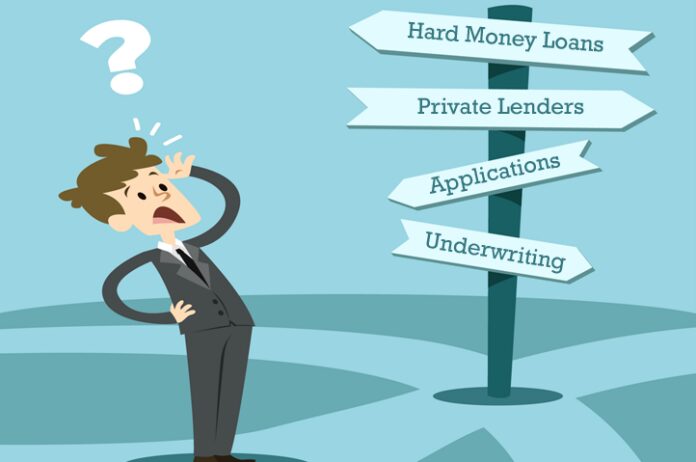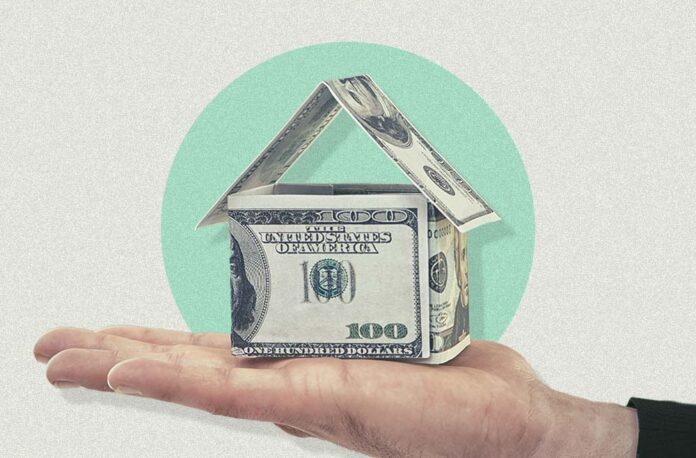It has become more common for investors and small businesses to apply for hard money loans to finance short-term real estate projects in recent years. But what are hard money loans? It is leverage or an asset-based loan secured by real property in which investors can offset the cost of using their own money.
These loans are obtained from lenders by borrowers often looking to buy rentals or rehabilitate distressed properties, better known as “house flipping,” with the intent to sell or rent out the newly renovated home. The loan amount a lender is willing to give is dependent on a few factors such as collateral, credit score, and previous real estate experience.
Even if an investor is in good standing with those criteria, it does not come without risk. If you or someone you know is thinking about applying for a hard money loan from a hard money lender in Austin, such as housemaxfunding.com to fund a real estate project, consider some of both the pros and cons before making a final decision.

Pros of Hard Money Lending
-
Credit Scores Are Not Deciding Factor
One of the more straightforward elements that most investors will be glad to hear is that hard money lenders will usually approve loans even if they have a low credit score. Typically, the higher the score, the better the loan and the lower the interest rate. On the other hand, hard money lenders will often approve a loan if they see high profitability in the investor’s real estate project.
-
Faster Approvals
Most hard money lenders in Texas will approve a loan in 24 to 48 hours, although some can take up to a week. This is still an incredibly quick turnaround time compared to going through a bank, which may take up to 30 days. Since hard money lenders fund loans through their own private capital, there is no need for them to deal with a broker or any third party to get your loans funded.

-
Fix and Flip Loans
Banks will typically not loan on a high-risk project like house flipping loans, but a direct lender can. This means you can easily and quickly get the funds to start a house flipping project on a property a bank would likely see as uninhabitable. Investors can apply for a hard money construction loan from a direct lender and get vacant real estate for a low price with a higher profit margin for both the borrower and the lender.
-
Partnership
Another benefit is the hard money lenders can provide advice, and guidance on deals they can be a resource for contacts as well. They know about the most reputed contractors and they can guide you to them. They do have knowledge about stagers, title companies, agents, and can guide you about how you should meet them. Also, they can be a great resource to find the comparable and most of them can even evaluate your deal without costing you a dime. Now the senior has been changed as a whole as the lender isn’t just there to provide capital as investors are keen interested in finding reputable lenders to start an ongoing partnership with.

-
Flexible Terms
Since investors do not have to go through a commercial bank, they can often negotiate their terms of payment and the duration of which the loan is repaid. Depending on how profitable or risky a lender views the borrower’s real estate project will determine the terms in which they can agree on.
-
Off-Market Properties
If you don’t know then these are the properties that are sold by the wholesalers. A wholesaler is an individual who looks for the off-market property, creates a contract and secures it then within a few days will sell it to other investors. Unlike properties in MLS listings, these aren’t available online. If your goal is to get a good off-market property then your hard money lender can be helpful in connecting you with any local wholesaler.

Cons of Hard Money Lending
-
High-Interest Rates
By getting a hard money loan from a direct lender in Texas, you will pay a higher interest rate than a traditional loan through a bank. This is because of the increased risk involved with the lender’s capital and the immediate access to funds you receive to invest in your real estate project. In order for the lender to start making some money back before the term ends, expect to pay a rate anywhere between 7% – 15%.
-
Larger Down Payments
To reduce the risk of defaulting on a loan, lenders will usually require a down payment anywhere between 20% up to 30%. This incentivizes investors to finish their projects, but getting the money to pay down right away can be a significant obstacle for those just starting out.

-
No Long-Term Loans
Most direct lenders will only give you 12 months on a loan, and it is expected of borrowers to complete and flip their property within this timeline and pay back the loan in full. A long-term loan means increased risk for the lender, and while it is possible to get an extension on a loan, it will also likely come with an extension fee and a higher interest rate.
-
Extension Fees
This is a kind of loan that has a lifespan of 12 months. If you are borrowing then you will be required to complete your flip and pay the loan back to the lender within the given amount of time. However, there can be issues with the paying back making and may require you to extend the timeline but the problem is that this loan extension doesn’t come free. Though hard money lenders are usually flexible when it comes to providing extension for the loan. However, it is the borrower who should be ready for the consequences that they will have to face because of extension. They may have to face consequences such as increased monthly interest payments and may have to pay an extension fee.

-
Foreclosure
Sometimes, a project does not work out in your favor, and like a conventional mortgage through a bank, foreclosures can happen. Missed payments and failure to maintain the property as agreed on with the lender can mean them taking the property back, even before makeovers are finished. Most lenders are willing to work with borrowers to figure out a strategy to continue relations, but knowing the risks involved can help investors plan to avoid it altogether.
In the long run, the benefits of hard money loans can mean continued working relationships with direct lenders as business partners. Standing in good faith with these lenders can possibly lower interest rates for future projects and larger loans for more ambitious real estate rehab. This in turn, can become a lucrative business for serious investors looking to advance in property flipping long term.
However, a number of risks mentioned above can be avoided by taking a look and understanding the lender’s terms and fees. Also, consider a good exit strategy and make sure to pay the payments on time as this will help you form a good relationship with the lender that will last longer. Lastly, once you have been proved a safe investment to your lender by completing the project successfully then you can expect lowered origination points and lowered rates.
This is quite common and many of us have witnessed how banks can reject our loan application and in such scenarios, hard money lenders can be a great option. However, it is crucial to understand the risks involved and the pros and cons of getting into sizable real estate overhauls, those looking to acquire a hard money loan from a direct lender in Texas for the first time should have no trouble getting started.









